Academic Sustenance
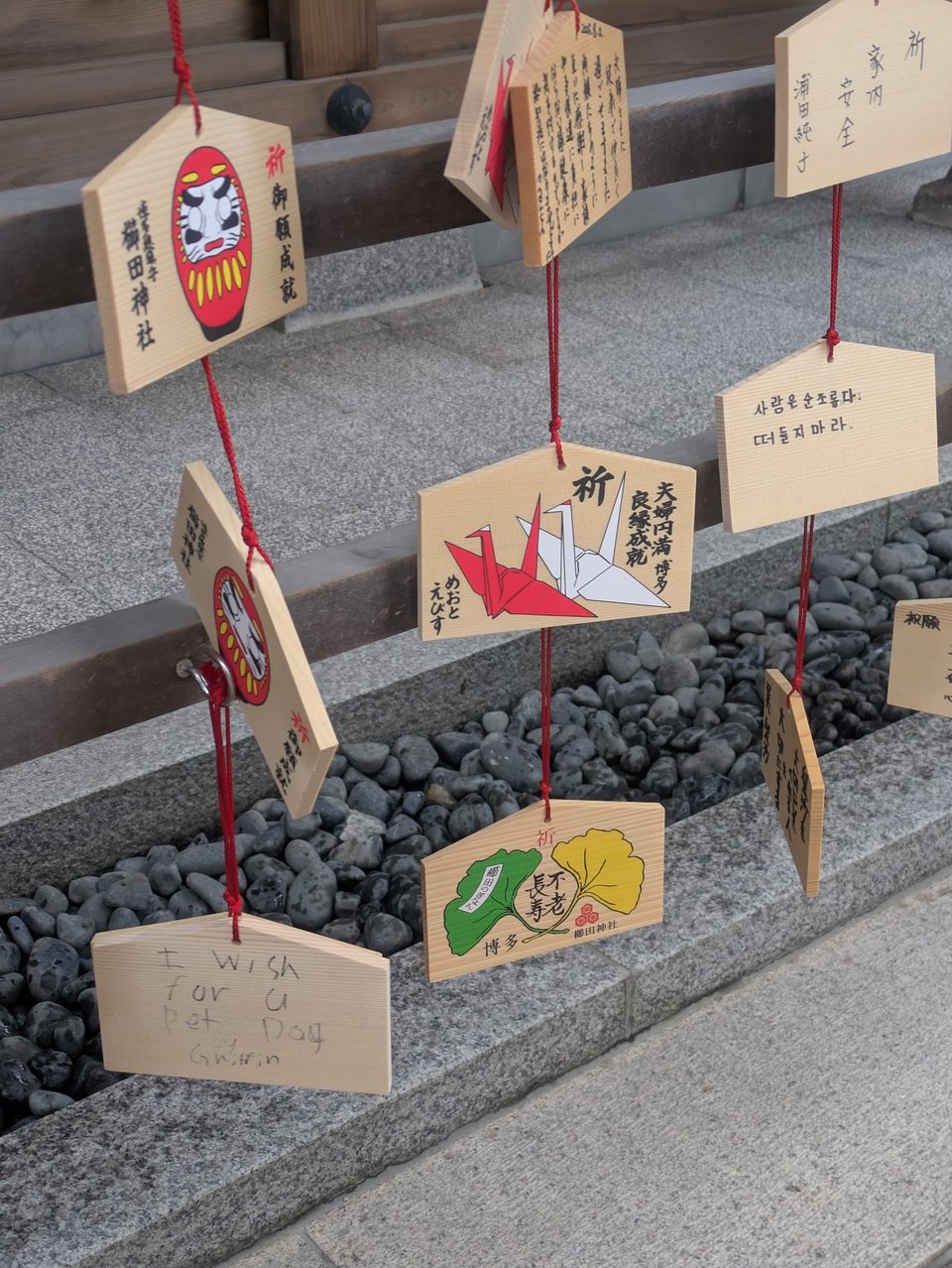
Friends,
We just finished celebrating Moon Festival, or Mid-Autumn Festival, here in Taiwan. I avoided overdosing on mooncakes, and even though I complained a lot about how it doesn’t feel anywhere close to autumn, the evenings are getting pleasant. The seasons are changing! Yay.
One of my favorite social media follows, Duke professor Eileen Chengyin Chow, has for the last several years shared a wonderful poem by Xin Qiji/辛棄疾:
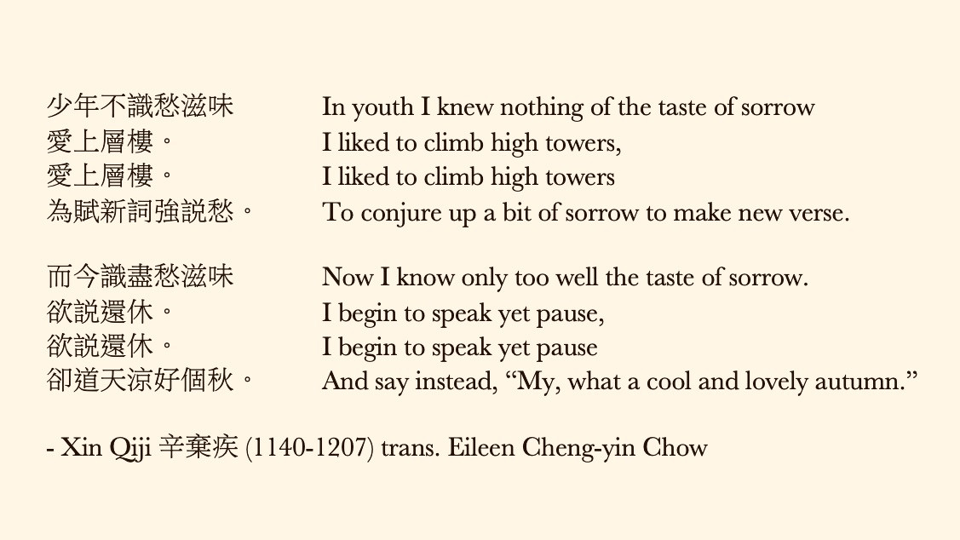
What a good poem.
One of the things we can all replace climbing high towers with is an appreciation for the simpler things. For example, I look forward to my discounted lunches at NTU. NTD$50 (~USD$1.65) gets me a substantial scoop (so substantial I usually ask for a half serving) of 胚芽米 (pēi yá mǐ) rice, which is a kind of halfway point between brown and white, plus my choice of four sides that rotate daily. I usually try to go with one seaweed choice, one soybean product, one leafy vegetable, and one root vegetable. No more than one fried thing!
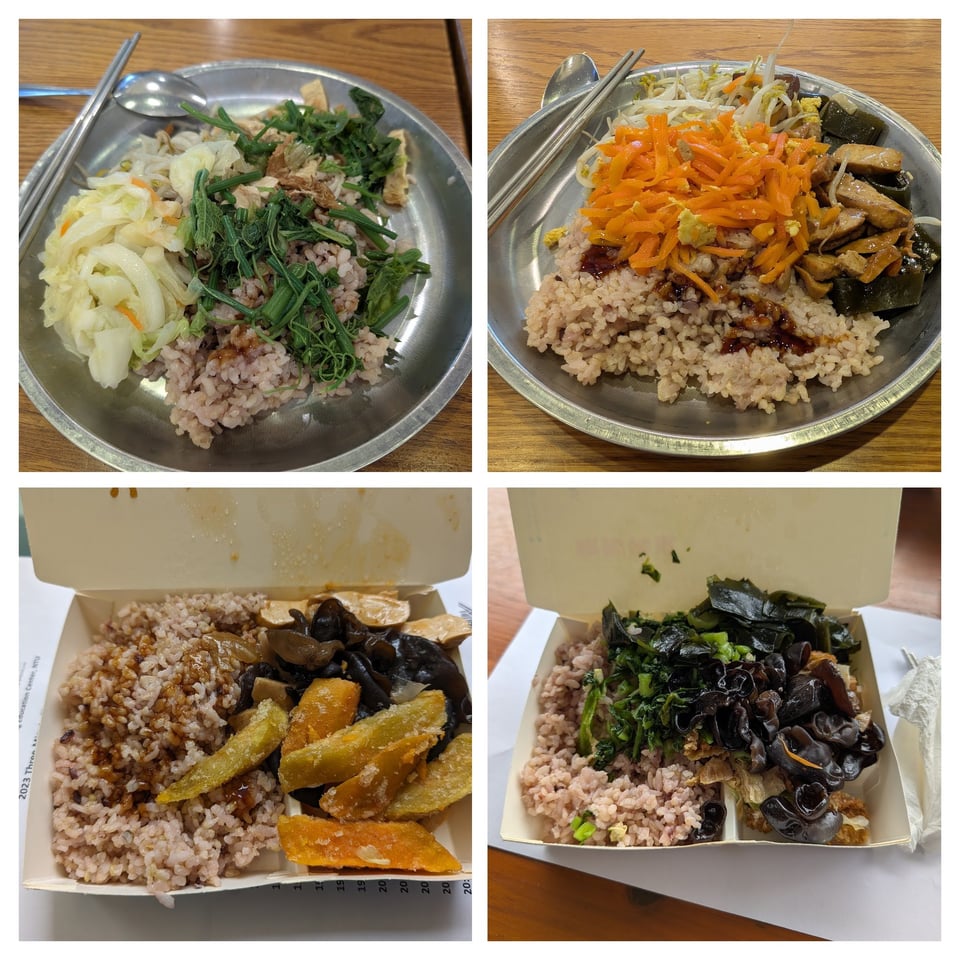
I have yet to go across the street to sample the Science and Technology University’s (NTUST) offerings. Several people have told me that this university is sometimes called NTU’s kitchen, because they have better food so many students from the bigger university swoop down upon the hapless smaller campus. Maybe one day.
NTU doesn’t just have the vegetarian buffet. There are cafeterias across campus, and students have strong opinions about which ones are the best. I know, because they frequently write about them for my “write a review” assignment - apparently the 9th Women’s Dorm is a fan favorite. There’s also multiple convenience stores, cafes, drink shops, a waffle shop, Subway, and a brand new gelato shop. One of my favorites is the “farm cafe”, where you can buy teas, juices, and other products made from things produced by NTU’s agriculture-related departments. And they’re constantly evolving! This year we have a few new food trucks, which are apparently a proactive preparation for when a building containing multiple food options, Xiao Fu Square, is going to be closed for remodeling. This is where I’d get lunch the first year I worked there, standing in line for a vegetarian lunch box that frequently sold out, because there are so many dining options I didn’t even know the vegetarian cafeteria existed.
One of my favorite options was a dessert and tea shop that had the perfect long lecture drink: hot ginger tea with brown sugar and lemon—黑糖檸檬薑母茶, highly recommend. Unfortunately, they closed during a different construction a year ago and haven’t reopened!
Even non-students join us for our food (to some discomfort, as I’ve written), and that’s not counting all the stuff in the nearby area. Tons of good food means tons of trash, though. Fortunately the campus addresses this in many ways. Disposable chopsticks cost extra to discourage their use. Single-use plastic is minimized, especially compared to off-campus restaurants. There’s a lot of sorting that goes on, including food waste, as well as a lesson to me in the form of a bin labeled “Tetra Pak” - a thing I didn’t even know existed, but had previously confused for cardboard. It is instead a blend of materials only recyclable in special facilities. The sorting isn’t just in the cafeterias: the top of the two photos below is from a lecture hall. All of this is on top of the efficiency that the large scale food preparation affords.
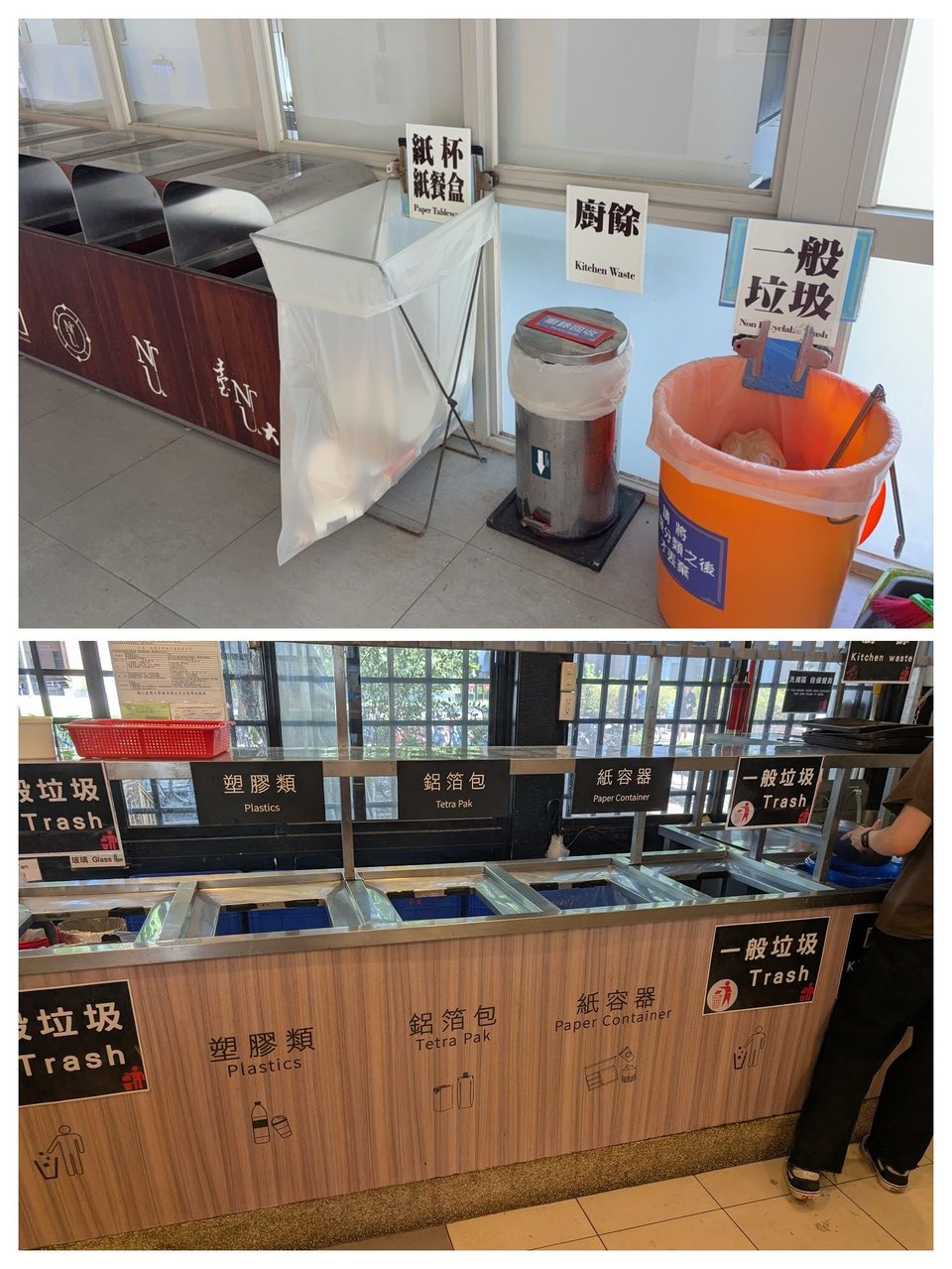
I was glad to see Southern Foodways Alliance’s newsletter, Gravy, address the huge amount of waste created by to-go paraphernalia. It’s something we should all think about, and a lot of students respond very positively to me always nudging the people who bring in disposable bottles/cups to consider alternatives. NTU also provides a reusable set of silverware and a thermos to new students. I really hope NTU’s practices get them to think about all the extra trash that buying a daily bottle of tea or ordering Uber involves.
But NTU doesn’t just reduce the campus’s massive footprint through food. Cars are very, very discouraged through limited parking and little access to visitors. Bikes are encouraged through TONS of bicycle parking and a free staffed maintenance shop, not to mention a lot of short-term rental bikes. Large trees are kept close to buildings, providing shade and reducing cooling needs (even if it’s easy to forget sometimes). And, probably the biggest difference, with a handful of exceptions (like the library), only classrooms and offices are air-conditioned, and they quickly get turned off when unused (almost all of my classes has had a student who pays special attention to making sure of this). Hallways, common areas, and cafeterias all go without AC. Which is so uncomfortable! But what’s a little embarrassing sweat in exchange for using so much less energy and heating the outside air less.
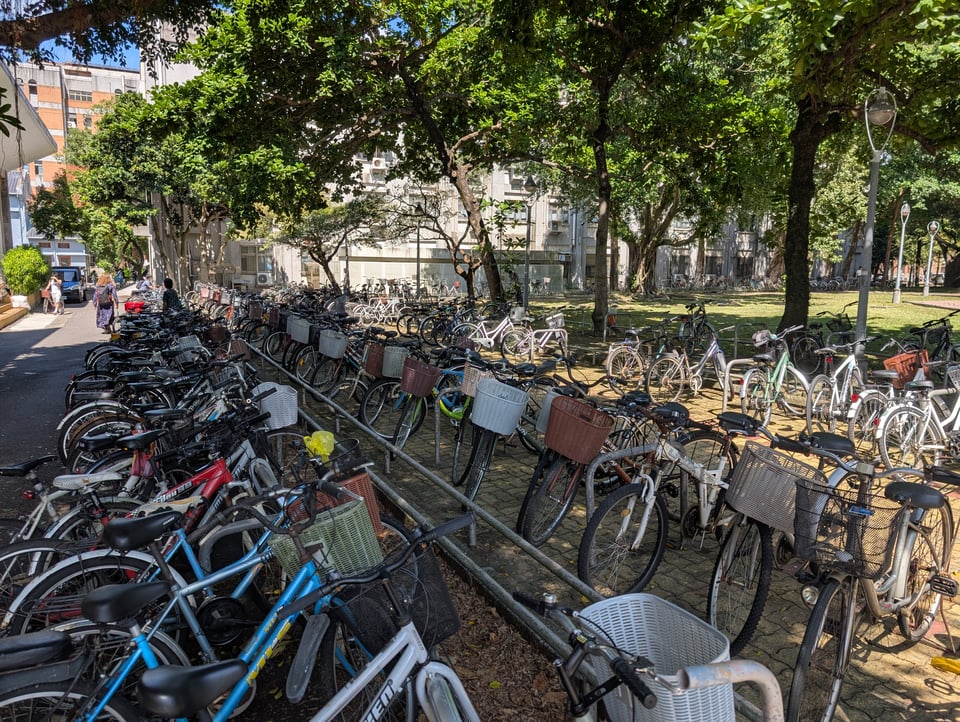
Universities are huge organizations, which means their decisions have the ability to make a big difference. But those decisions are the results of individuals, of the availability of options, of the cultural norms. Don’t discount your ability to make a difference too.
Take a leftover container with you on your next restaurant outing!
Further reading:
Related to this month’s topic, convenience is a way of life here in Taiwan, as Brian Hioe writes in The New World. It’s one of the main reasons I love living here - so much less of my life is spent doing logistics or things I don’t want to do - but it’s also the source of a lot of the (considerably less) moral abrasion.
I’m so glad StoryCorps is still going strong at NPR. They’ve been doing good work for so long! Last month’s story about a retired teacher grandmother dedicating herself to learning speech therapy for her granddaughter was so touching.
Also very glad Reading Rainbow is making a return. I actually didn’t know that the original program’s specific goal was to mitigate the losses of summer vacation, given the main way I saw it was during rainy recesses in elementary school. Remember, if there’s a young person in your life, PBS Passport is a great gift (it is, unfortunately, inaccessible outside the US without a VPN).
I am so sick of talking about LLMs, but I am going to share N+1’s editorial about the subject, purely because they use the perfect description: “AI-made material is a waste product: flimsy, shoddy, disposable, a single-use plastic of the mind.” As a follow-up, I bet working at Merriam-Webster is a lot of fun.
Relatedly, I’ve still seen no peer-reviewed evidence that LLM usage results in long-term educational gains for students, no matter the context. This is unsurprising, considering there’s also no evidence the existing “EdTech” platforms are doing anything other than bleeding money from public education funds to private companies. Report: "Overall, research has not supported the common-sense presumption that digital approaches to schooling are better than non-digital alternatives. At the broadest level, widespread computer use in education has been found to be associated with lower student achievement." Thanks Anne Lutz Fernandez for sharing.
Jordyn Haime has an incredible longform dive into Taiwan’s complex relationship to its role in World War II. Taiwan was a Japanese colony at the start of the war, but the Republic of China was on the Allies side, so that’s what modern memorialization efforts focus on. This perspective erases the actual history of the island though, and there’s moves to change this.
Jeffrey Selingo had a good article outlining the terribleness seniors face when choosing a university, and the few but very meaningful ways the top schools stand out. My students almost exclusively apply to the “Elite” category of schools, so I can’t do much with the info, but it was enlightening to see some actual data around differences between universities.
My continued observation that, compared to the US, Taiwan has more gender equality in public and less in private seems to be holding true! (And is probably getting more pronounced.) This year’s ghost month featured a very inclusive celebration in Chiayi, Taiwan’s ~9th largest city.
As summer draws to a close, one thing that has separated this year from others are cockroaches. Or a lack thereof.
As anyone in a tropical environment knows, cockroaches are a part of life. When people online ask how to avoid them, the usual answer is to live on the 10th floor or higher in only new buildings and move somewhere new every couple of years, otherwise there is no avoiding them. You can reduce them, of course, by not living near cockroach attractions (the night markets) and by keeping your place clean and by hoping your neighbors do the same, but there are no guarantees. They’re going to surprise you at night, in your bathroom or just outside your door, and for me it’s been infrequent enough that each one is a jolt.
But this year is different. I’ve written to you before about our back door having become warped loose after a few earthquakes and typhoons; I finally got it fixed with a lot of extra weather stripping. In addition, I’ve been putting out new traps on a regular basis, and we’ve been covering our drains more regularly at night. Since making these changes, we’ve seen almost zero in our apartment, and I kind of patted myself on the back and kind of got mad at myself for not doing it before. No surprises at night, no little black flecks appearing in the bathroom. But then I started paying more attention outside, and I don’t know why, but there just seems to be very few this year. Maybe our success has nothing to do with us! But we will take the success anyways.
May you be on the receiving end of success of unfortunate origins, as well.
-g